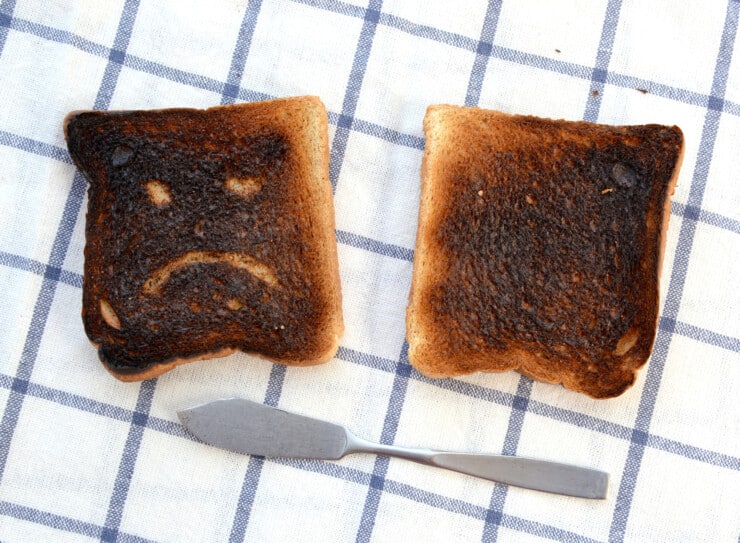Why Is There A Strange Tar Smell In My House?
Have you ever stepped into your house and been welcomed by a strange, tar-like odor that just won’t disappear? You’re not the only one facing this issue.
Well, it’s time to stop the guessing game!
In this article, we’ll dive deep into the reasons behind that strange tar smell in your house and provide you with some helpful tips on how to deal with it.
We understand how frustrating it can be when something is amiss in our homes, especially when we can’t quite put our finger on the source of the problem.
That’s why we’ve done extensive research to help demystify this enigmatic issue for you.
Identifying The Source Of The Odor

Embarking on an odor investigation in your home can be both intriguing and challenging.
The first step you can do is identifying the source of the odor.
Smell detection requires you to pay close attention to your surroundings and use all available senses.
Start by noting any patterns or changes in the environment when the scent becomes more potent.
Is it stronger during specific times of day?
Does it intensify with warmer temperatures or humidity levels?
Are there any common household items nearby that could be causing the smell?
These observations will help narrow down potential sources and lead you closer to solving the puzzle.
As you venture further into your pursuit for answers, keep in mind that smells can sometimes travel great distances from their origin.
This means that even if you pinpoint a particular room as being ground zero for the aroma, don’t neglect other areas of your home.
Be thorough in examining possible culprits such as ventilation systems, appliances, plumbing fixtures, or hidden mold – all while keeping an open and curious mindset throughout your search.
Potential Causes Of Tar-Like Smells

Faulty HVAC could be the cause of the tar-like smell in your house; it’s important to make sure it’s been regularly serviced.
Leaking roofs can also cause this smell, so if you’ve had any recent rain it could be worth inspecting your roof.
Burning plastic is another possible cause, so if you’ve been doing any DIY or burning candles make sure to double check.
It’s also worth noting that tar-like smells could be the result of an improper seal on your windows or doors.
Poor ventilation could be another factor, so make sure to open windows regularly to circulate fresh air.
Lastly, make sure to check any old furniture or carpets, as they could be the source of the smell.
Faulty HVAC
It’s a chilly evening and you’re ready to cozy up with your favorite book when suddenly, an unpleasant tar-like smell invades your living room.
You can’t help but wonder if there’s something wrong with the HVAC system in your home.
It might be time for some much-needed HVAC maintenance to address this issue before it worsens.
One of the main reasons why people experience strange odors like tar is because their heating system may have a faulty part or requires cleaning.
Over time, dust, dirt, and debris accumulate within the vents which not only affects air quality but also reduces efficiency.
This means that addressing odor control isn’t just about getting rid of funky smells; it also ensures that your HVAC system continues to work optimally for years to come.
To tackle these issues head-on, consider scheduling regular inspections from professional technicians who will clean and replace any worn-out parts as needed.
Another key aspect of maintaining good indoor air quality is ensuring proper filtration.
By investing in high-quality filters and changing them regularly, you’ll reduce the likelihood of developing strong odors over time while also protecting the overall health of everyone in your household!
Plus, incorporating routine maintenance checks into your schedule helps identify potential problems early on so they don’t escalate into costly repairs down the line.
Leaking Roof
But wait, there’s more!
Sometimes, the source of that pesky tar-like smell could be lurking above your head.
That’s right – a leaking roof might just be the culprit behind those odor origins.
Over time, moisture seeping through roof damage can cause mold and mildew to grow in your attic or crawl spaces.
This not only leads to unpleasant smells but also poses potential health risks for you and your loved ones.
So how do you deal with this?
It’s simple – take action now by inspecting your roof regularly for signs of wear and tear (or better yet, have a professional do it).
Keep an eye out for damaged shingles, cracks, or other issues that could indicate water infiltration.
Address any problems as soon as possible to prevent further complications down the line.
In addition to keeping up with HVAC maintenance and addressing potential roof leaks, don’t forget about other areas where smells may originate like kitchen appliances or bathroom drains.
The bottom line: stay proactive when it comes to home care so you can enjoy a fresh-smelling sanctuary every day.
Burning Plastic
But hold on, there’s another potential cause of that tar-like smell we haven’t covered yet – burning plastic.
That’s right; sometimes, the source of that awful stench could be something as simple as a piece of plastic accidentally melting or burning in your home.
You might have unknowingly placed an item too close to a heat source, causing it to emit those strong fumes.
And let’s not forget about the plastic dangers and health effects associated with inhaling these toxic chemicals.
Now you might be wondering, what can you do to prevent this from happening?
It’s all about being aware of your surroundings and paying attention to details such as placing items away from heating elements like stoves, heaters, or even hairdryers.
Make sure children understand the importance of keeping their toys and belongings safe from high temperatures too!
So next time you detect an unpleasant odor reminiscent of tar lingering around your living space, don’t just brush it off!
Investigate its origin – whether it’s from poor HVAC maintenance, roof leaks, or burnt plastics – and take action accordingly to ensure a healthy environment for everyone involved.
Remedies For Eliminating Unpleasant Scents

The first step towards eliminating those strange tar-like smells is understanding their origin.
Once identified, it’s time to take action and restore harmony within your living space.
Odor absorbing materials are an excellent ally in this battle against unwanted scents.
Activated charcoal bags or air purifying bags containing natural ingredients such as bamboo charcoal or zeolite minerals can be strategically placed around your house to absorb foul-smelling molecules floating in the air.
These powerful tools don’t just mask odors; they neutralize them, leaving fresh and clean air behind for you to enjoy.
If you prefer something with a more delightful fragrance, consider using scented candles.
Not only will these aromatic wonders add warmth and ambiance to any room, but they’ll also work tirelessly to replace lingering malodorous notes with pleasing aromas reminiscent of lavender fields or zesty citrus groves.
As our olfactory journey comes full circle, remember that consistent cleaning practices play a significant role in maintaining a pleasant atmosphere inside your abode.
Regularly airing out rooms by opening windows and doors allows fresh air circulation while vacuuming carpets and wiping surfaces help keep dust particles at bay – both are common culprits behind stubborn smells that refuse to budge.
Preventative Measures To Keep Your Home Fresh
Now that we’ve discussed some remedies for eliminating unpleasant scents, let’s focus on preventative measures to keep your home smelling fresh and inviting.
By taking a proactive approach, you can maintain a clean and pleasant environment while avoiding the need for constant odor removal efforts.
One of the best ways to prevent bad smells from accumulating in your house is by ensuring proper air circulation through effective home ventilation.
This involves routinely opening windows and doors to allow fresh outdoor air inside. You may also consider investing in an air purifier or exhaust fans in bathrooms, for examples, where moisture can easily build up over time.
Maintaining cleanliness around the house with regular vacuuming, dusting, and wiping surfaces will go a long way in preventing odors from developing.
Another excellent strategy for keeping your living space free of unwanted smells is using odor absorbers throughout your residence.
Some popular options include activated charcoal bags, baking soda boxes, or even certain plants known for their ability to neutralize foul aromas like spider plants and peace lilies.
Incorporating these elements into your home décor not only helps control lingering scents but adds an aesthetic touch too!
The key here is being consistent with replacing or refreshing these absorbers when needed so they continue working effectively at all times.
When To Seek Professional Help

It’s essential to know when it’s time to seek professional help in identifying and dealing with a strange tar smell in your house.
While you may have tried various methods to address the issue, such as locating the source of the odor or airing out your home, sometimes the problem could be more severe than anticipated.
In these instances, calling for professional assistance is not only beneficial but also necessary.
An expert evaluation can provide valuable insight into the root cause of the smell and offer effective solutions tailored to your specific situation.
Professionals possess specialized tools and knowledge that enable them to accurately identify any potential hazards associated with the odor.
Seeking their expertise ensures that all safety protocols are followed while addressing the issue at hand, giving you peace of mind knowing that your home will once again be a safe and comfortable environment.
Don’t hesitate to call on professionals if you’ve exhausted all possible avenues in trying to eliminate the tar smell yourself.
Persistent odors can indicate underlying issues requiring immediate attention, including potentially harmful substances affecting indoor air quality or structural damage within your home.
Remember, investing in an expert opinion now might save you from costly repairs down the line – so trust your instincts and request professional intervention when needed.
Frequently Asked Questions
Can Tar-Like Smells In My House Cause Any Health Issues Or Allergic Reactions For Me Or My Family Members?
Prolonged exposure to tar-like smells can indeed cause health issues or allergic reactions for some individuals.
To prevent these concerns and maintain domestic bliss, consider implementing tar smell prevention measures such as proper ventilation, using air purifiers, and addressing any underlying causes of the odor.
Try to explore various odor removal techniques like activated charcoal bags or essential oil diffusers to effectively neutralize those pesky fumes.
How Long Does It Typically Take For A Tar-Like Smell To Dissipate On Its Own, Without Intervention?
The duration it takes for a tar-like smell to dissipate on its own largely depends on the source of the odor and the conditions within your home.
Some common tar smell sources, such as new asphalt or roofing, could take anywhere from a few days to a couple of weeks for the scent to naturally fade away.
In other cases like cigarette smoke residue or mold issues, it might persist until proper cleaning and remediation measures are taken.
To speed up smell elimination, you can increase ventilation, use air purifiers, and employ odor-neutralizing products.
Keep in mind that eliminating persistent odors may require professional intervention if self-remediation attempts don’t produce satisfactory results.
Are There Any Specific Household Products Or Materials That Are Known To Emit Tar-Like Smells When They Age Or Break Down?
As it turns out, there are a few common household materials and products that can emit tar-like smells as they age or break down.
Some usual suspects include aging carpeting or flooring adhesives, deteriorating insulation materials, old electronics overheating, and even certain types of paint.
These tar smell sources can be particularly bothersome if you’re sensitive to strong odors.
Thankfully, with some effective odor elimination techniques at hand (such as thorough cleaning or professional assistance), you’ll be well on your way to mastering the art of maintaining an invitingly fresh atmosphere indoors .
Can Weather Conditions Or Outdoor Factors Contribute To The Development Of Tar-Like Smells Inside My Home?
Absolutely, weather conditions can influence the presence of tar-like smells in your home by exacerbating outdoor sources.
During hot summer days or periods of high humidity, asphalt and roofing materials may emit stronger odors that can seep indoors through open windows or ventilation systems.
Nearby road construction or industrial activities could also be responsible for these pungent aromas making their way into your living space.
By paying attention to external factors like temperature fluctuations and prevalent local industries, you’ll gain a better understanding of how environmental aspects might contribute to those mysterious tar-like scents wafting through your home.
Are Certain Types Of Homes Or Buildings More Prone To Experiencing Tar-Like Smells, And If So, Why?
Imagine the frustration of moving into your dream home, only to be greeted by an unwelcome tar-like smell that lingers throughout.
Certain types of homes or buildings may indeed be more prone to experiencing tar smell origins due to factors such as older construction materials, proximity to industrial areas, and inadequate ventilation systems.
Learning about these potential sources not only empowers you with valuable knowledge for odor removal but also helps in making informed decisions when choosing a place to call home.
Final Thoughts
It’s quite surprising how many factors can contribute to the mysterious tar-like smell in our homes.
From aging materials and outdoor conditions to certain types of buildings being more susceptible, we must be vigilant in identifying potential sources.
Let us not forget that these odors may impact our health and well-being, as well as those of our loved ones.
Together, let’s strive for a better understanding and take action when needed to ensure a safe and pleasant living environment for all.







